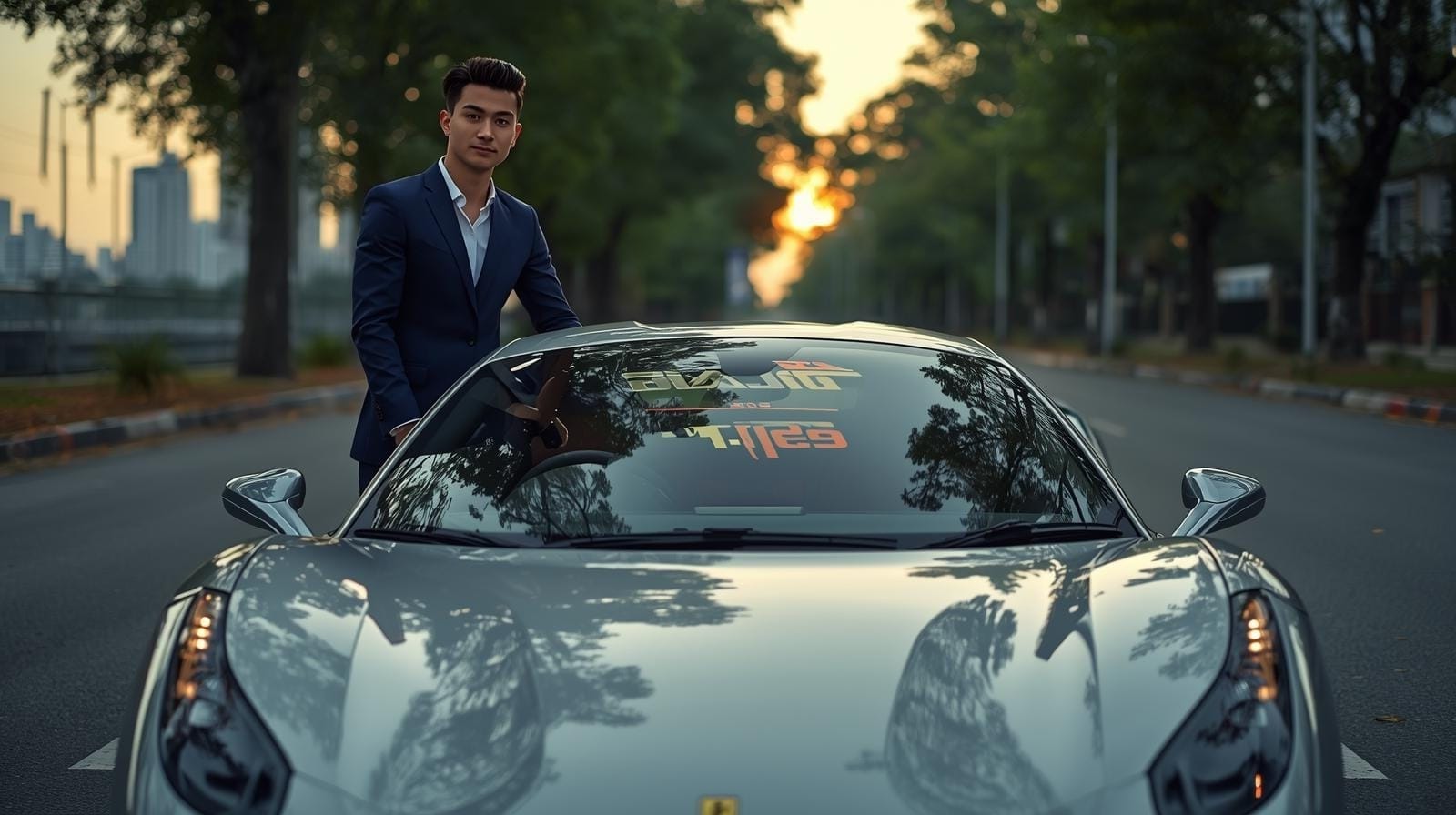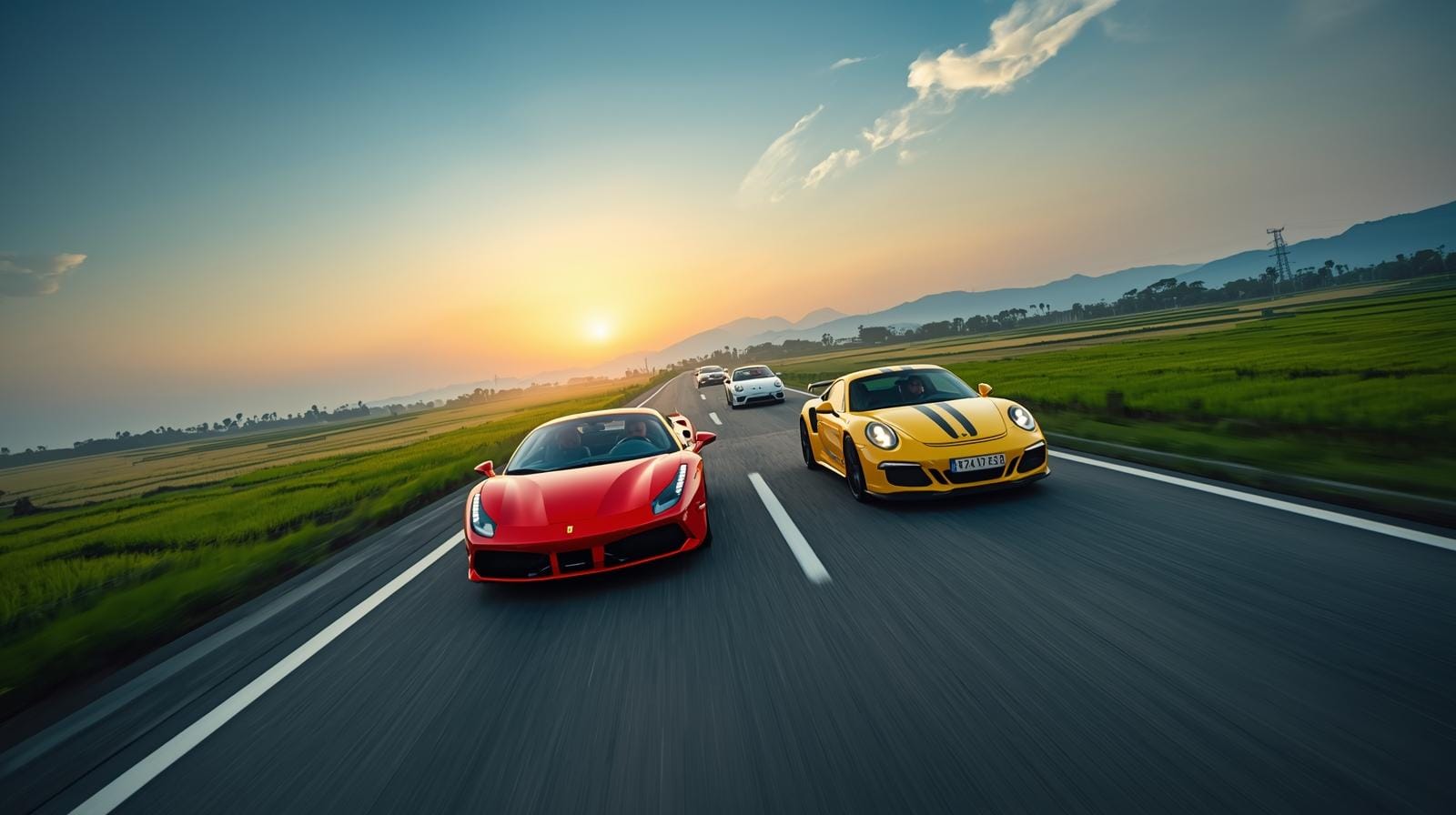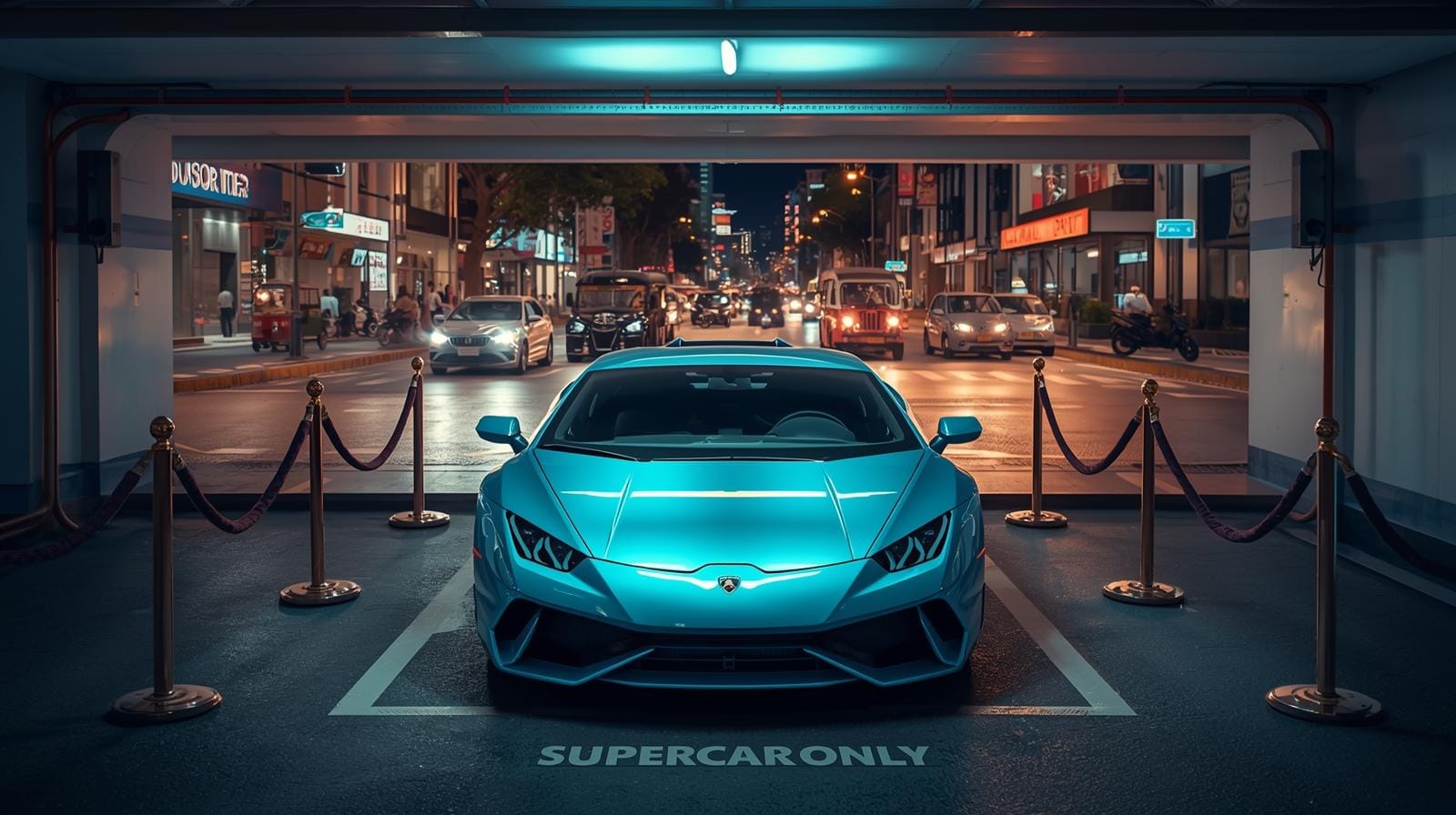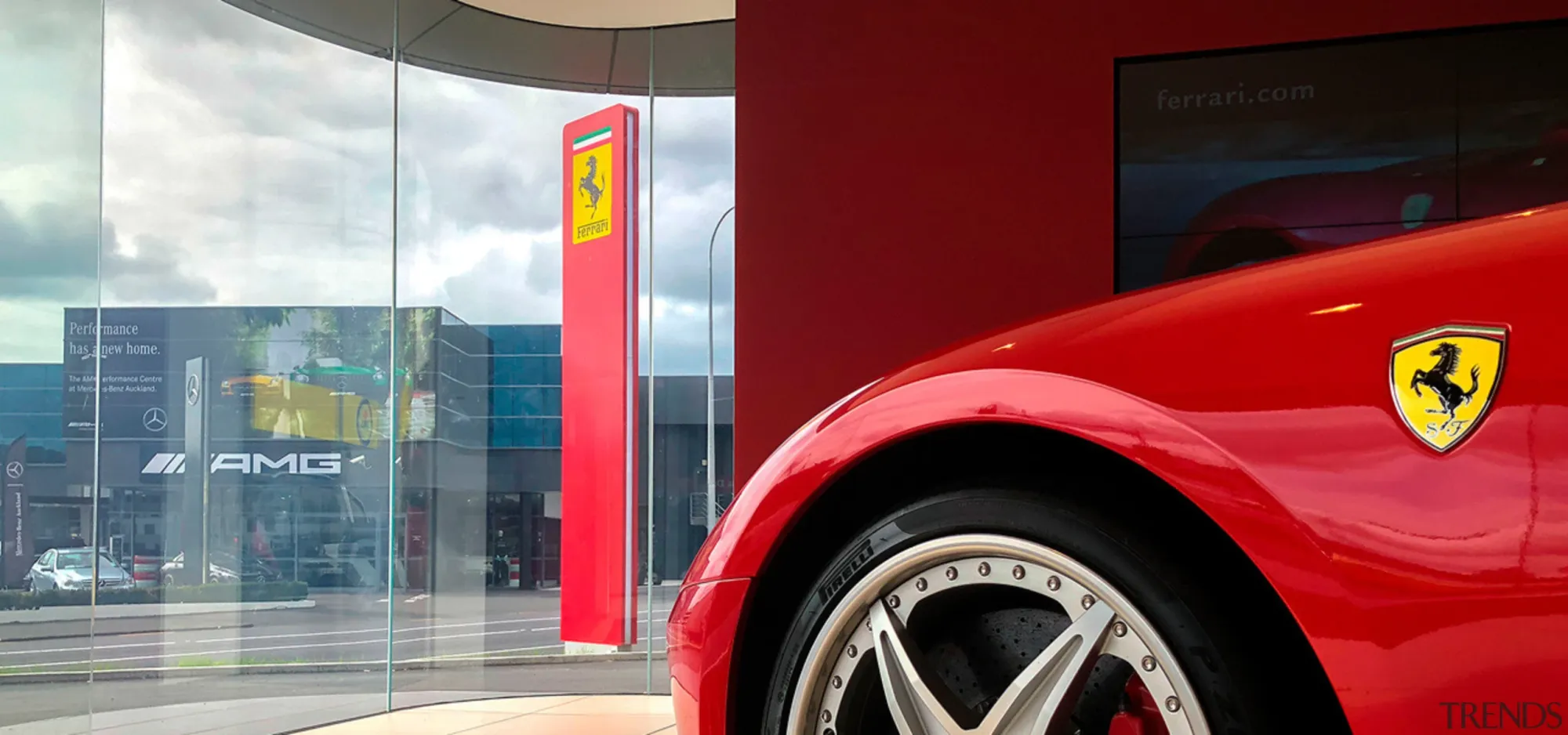In Thailand, supercars aren’t just fast cars – they’re a cultural spectacle and a statement of status. From a Thai-born energy drink empire fueling global racing dreams to Lamborghini-lined parking spots in Bangkok’s glitziest malls, the Kingdom’s love affair with luxury sports cars offers a high-octane look into wealth, prestige, and the thrill of speed.
By Jonathan Reid
High-Octane Status in the Land of Smiles
Thailand’s elite have developed a high-octane car culture unlike anywhere else. On any given weekend in Bangkok, you might find the basement of Siam Paragon mall transformed into a luxury car showroom – Ferraris, Lamborghinis, and Porches arranged like prized jewels. In a nation famed as the “Land of Smiles,” these supercars have become the new social currency. They signal prestige in a society experiencing a surge of new wealth and are often treated as extensions of one’s identity. The paradox? Bangkok’s notorious traffic means many of these 200-mph machines spend their days crawling through congested streets. Yet even in gridlock, a bright green Lamborghini or a silver Ferrari turns heads and telegraphs one clear message: someone very important (and very wealthy) is behind the wheel.
Despite import taxes that can make a supercar cost nearly three times its price overseas, Thailand’s appetite for high-end automobiles keeps revving higher. The country counts well over a hundred thousand millionaires, and for this growing affluent class a supercar is the ultimate status symbol – a marriage of wealth and horsepower. “For Thailand’s wealthy elite, supercars are more than machines; they’re social statements,” as one automotive observer aptly noted. In upscale Bangkok districts like Thonglor and Sukhumvit, it’s not unusual to see Aventadors and McLarens jockeying for curb space outside luxury nightclubs, effectively turning sidewalks into impromptu auto shows. These scenes underscore how deeply entwined supercars and status have become in Thai high society over the past decade.
“Owning a Ferrari in Bangkok means spending $900k for a car that might never escape second gear – and that’s exactly why it impresses.”

Red Bull, Race DNA, and the Thai Need for Speed
Thailand’s supercar phenomenon even has wings – Red Bull wings. The famed energy drink was co-founded in Thailand decades ago, and today the Red Bull brand is a powerhouse in global motorsports. This unlikely Thai connection to Formula 1 has infused local car culture with pride and race-car dreams. When Red Bull Racing’s cars blaze around international circuits, many Thais quietly note that a bit of Thai DNA – and financing – is behind those victories. The country even had a Thai F1 driver, Alexander Albon, carrying the flag in recent seasons, underscoring Thailand’s presence on the world speed stage. The need for speed here runs from the streets of Bangkok to the heights of Formula 1.
But the intersection of supercars and Thai high society hasn’t always been glamorous. A decade ago, a member of Thailand’s richest clans – the family behind Red Bull – made global headlines for the wrong reasons. In 2012, Vorayuth “Boss” Yoovidhya, heir to the Red Bull fortune, allegedly sped his Ferrari through Bangkok’s Sukhumvit Road and struck a police officer, killing him. The ensuing scandal, with Boss evading justice for years, became a symbol of what unchecked privilege could look like behind the wheel of a supercar. The case “captured significant public attention in Thailand” and stoked anger over perceived impunity for the ultra-wealthy. While sensational, this incident spotlighted how entwined fast cars are with status and controversy in modern Thailand. (Indeed, when even a billionaire’s son can’t resist racing a Ferrari through Bangkok at dawn, it says something about the national car fever.)
Yet for every notorious tale, there are countless stories of passion and legitimate enthusiasm. Thailand’s super-rich are genuine petrolheads: some collect limited-edition Bugattis; others sponsor local racing events or build private car museums. Quotes from the community reflect a real love: “I grew up watching Formula 1 – now I drive a car that makes me feel like I’m in it,” one young heir apparent told a Thai car magazine, capturing a sentiment many share. And as Red Bull’s global racing success shows, Thailand’s influence in the supercar and motorsport world is more significant than outsiders might assume – a point of quiet national pride.
“Even a silver Ferrari in Bangkok can cast a long shadow – sometimes of glamour, sometimes of controversy.”

Road Trips and the Roar Beyond the City
What good is owning a 700-horsepower supercar if you can’t stretch its legs? Thailand’s supercar owners have solved that by taking their toys out of the city whenever they can. In the early morning hours, when Bangkok’s gridlock briefly clears, you might hear the roar of a V12 echoing along the elevated expressways. More often, though, enthusiasts plan weekend escapes. Popular routes have become almost legendary in the supercar community: Bangkok to Hua Hin along the smooth Phetkasem highway, or a blast down Motorway 7 to Pattaya – roads where one can (at least occasionally) hit triple-digit speeds and feel the acceleration pinned to the seat.
Car clubs organize caravan-style road trips that are part adventure, part rolling spectacle. Picture a dozen Lamborghinis snaking through misty mountain roads en route to Khao Yai National Park at sunrise, or a fleet of McLarens and Ferraris cruising to a seaside resort in Phuket for a charity gala. These group drives aren’t just for show; they forge camaraderie among Thailand’s gearheads. At highway rest stops, one might witness surreal scenes: million-dollar cars parked next to pickup trucks, as drivers in casual shorts and loafers chat about torque and tire wear over coffee. Supercar rallies have become annual highlights too – from the “Phuket King’s Cup Supercar Run” to invitational track days at the world-class Chang International Circuit in Buriram, where owners can legally unleash full throttle on a racetrack.
Interestingly, Thailand’s geography offers ideal backdrops for these drives. The country’s well-paved highways and scenic byways mean a Ferrari or Porsche can be more than a city status symbol; it can be a passport to stunning landscapes. Winding roads around Chiang Mai or coastal stretches near Samui offer thrilling curves and postcard views in equal measure. “It’s about freedom,” explains one member of the Thailand Supercar Club. “We live with traffic jams all week, so when we get a chance to escape in our cars, we really savor it.” That sense of freedom – the wind rushing past and the engine singing – is perhaps the purest reason behind the supercar craze, beyond the glitz and Instagram photos. Whether it’s a dawn convoy to the mountains or a late-night sprint on empty city highways, these cars deliver an escape that many drivers find addictive.
“Beyond Bangkok’s traffic, Thailand offers open roads and open possibilities – a supercar’s dream playground.”

The Price of Prestige (and Its Pitfalls)
Thailand’s passion for supercars doesn’t exist in a vacuum – it reflects the country’s broader economic landscape and social nuances. These gleaming Lamborghinis and McLarens highlight a simple truth: inequality on wheels. The reality is that only a sliver of Thais can afford such toys, and they pay dearly for them. The government’s hefty taxes on imported high-performance cars – often exceeding 200-300% of the base price – mean a new Ferrari or Rolls-Royce in Bangkok can cost as much as three in Los Angeles. This extreme pricing has turned supercars into not just luxury items but ultra-luxuries, accessible to billionaires and the most successful entrepreneurs. It has also, at times, spurred a shadow economy of smugglers and inventive dodges. In one notorious episode, Thai customs officials auctioned off hundreds of seized supercars after cracking down on a ring of illegal importers who were sneaking in Lamborghinis and Ferraris to dodge taxes. The fact that such a black market existed says much about demand: even when playing by the rules costs a fortune, Thailand’s wealthy will find a way to get their automotive fix.
From a business perspective, the supercar boom aligns with Thailand’s rise as a regional wealth hub. Bangkok recently climbed into the top ranks of cities for luxury living costs, thanks in part to sky-high prices for high-end cars. Exclusive dealerships have opened showrooms inside malls (Lamborghini at ICONSIAM, Porsche at Siam Paragon), effectively bringing the product to the customer’s playground. Meanwhile, real estate developers have caught on to the lifestyle: Bangkok condos now advertise “supercar-friendly” features – extra-wide parking bays, private garages, even automobile elevators that lift prized cars straight to one’s penthouse in certain ultra-luxury residences. A cottage industry of premium services has sprung up around the craze. There are climate-controlled storage facilities for exotic cars (to pamper them in monsoon season), specialized detailers versed in Italian paintwork, and mechanics trained in Maranello or Sant’Agata.
Yet with great horsepower comes great responsibility (and occasional headache). Owners quietly gripe about Thailand’s road conditions – speed bumps and potholes are kryptonite for low-slung supercars. Insurance costs are stratospheric. And then there’s the social perception: not everyone cheers when a fluorescent green Aventador revs through a quiet neighborhood. For some onlookers, these cars represent excess in a country where the average income is a tiny fraction of the car’s cost. The Thai language even has a term “Rot Sat” (literally “animal vehicle”) for outrageously loud modified cars – a hint of the mixed feelings supercars can evoke among the public. Still, the broader trend is acceptance, even celebration, of the supercar phenomenon as part of Thailand’s modern identity. In a society that once prized gold and silk as status indicators, now horsepower and custom license plates carry social cachet. The hope among enthusiasts and observers alike is that this passion can translate into something positive – perhaps spurring Thailand’s own automotive innovations or racing events that put the country on the map for car culture in a unique way.
“A 300% tax on supercars hasn’t slowed Thailand’s wealthy – it just turned their passion into a high-stakes game.”

Mall Meets and Showroom Society
Perhaps nowhere is Thailand’s supercar mania more on display than in its shopping malls – the social hubs of urban Thai life. In Bangkok’s temples of consumerism like Central Embassy or EmQuartier, it’s not uncommon to find a special roped-off section of the parking lot labeled “Supercar Parking Only.” Owning an exotic car here doesn’t just get you looks on the road; it earns you VIP treatment everywhere you go – even preferential parking by the mall entrance, often with a security guard or valet attentively standing by. On Saturdays, Siam Paragon’s dedicated supercar zone can feel like an elite car meet. Aston Martins and Audi R8s are lined up with military precision, while their owners lunch casually upstairs, knowing their prized machines double as mall décor. Shoppers often pause to snap selfies with the cars; a few brave teenagers might circle a Lamborghini, admiring it as if it were a celebrity. In effect, the luxury mall and the supercar have a symbiotic relationship in Thailand: the malls provide a stage, and the cars provide the spectacle.
It’s an intriguing slice of Thai urban culture. High-end malls have long been status arenas – places not just to shop, but to see and be seen. Bringing a multi-million-baht car to the mall is the ultimate power move in this theater of affluence. It announces one’s arrival (literally and figuratively). Some dealerships and importers even sponsor these parking spots as perks for their clients. That means if you bought your Ferrari from the “right” showroom, you might get a coveted sticker granting access to VIP parking at several malls around town – an exclusive club within the club of supercar ownership. And for those without a supercar? Visiting these malls can still provide a vicarious thrill. Many locals and tourists treat the supercar section like a free exotic car show. It’s not unusual to see families taking photos next to a Rolls-Royce or a flamboyant McLaren, the kids grinning ear to ear. In a way, the mall meets allow supercar owners to share a piece of their experience with the public, even if informally.
As Thailand’s economy evolves and its cities modernize, scenes like these hint at a future where luxury and everyday life intersect in novel ways. The supercar-in-the-mall phenomenon feels uniquely Thai – blending the communal nature of shopping centers with the individualistic pride of ownership. It’s flashy, yes, but also oddly inclusive: anyone can walk by and enjoy the view. And it reinforces a quietly confident narrative about Thailand itself: a country that can host Lamborghinis in its malls is one that’s arrived on the global stage of prosperity and style. There’s a sense of continuation to it all – as if each generation will push the boundaries further, perhaps with even more extravagant vehicles or experiences (a private race track in a mall’s basement, anyone?). For now, as you stroll through Bangkok’s plush retail palaces and catch a glimpse of a low-slung Italian supercar under the fluorescent lights, you’re witnessing a living pageant of Thai luxury lifestyle – one that shows no sign of slowing down. The story, much like a winding mountain road, is still unfolding around the next bend.
“In Bangkok’s malls, a parked Lamborghini can feel as normal as a coffee kiosk – both a spectacle and a background feature of modern Thai life.”

Still stuck in 60-day cycles?
Turn short stays into a 5-year lifestyle with the Destination Thailand Visa — built for digital nomads, remote professionals, and global citizens ready to call Thailand home.
✅ Work online legally
✅ Stay without border runs
✅ Enjoy full-year living flexibility

Tired of coverage gaps or rejection at hospitals?
Protect yourself with Premium Expat Health Insurance — tailored for foreign residents, retirees, and long-term visa holders in Thailand who need global protection and local acceptance.
✅ Accepted by major Thai hospitals
✅ Meets visa and immigration requirements
✅ No more panic over surprise medical bills











